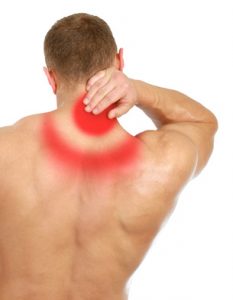 How to get rid of stiff neck?
How to get rid of stiff neck?
Although neck pain has become common of recent, you don’t have to lose sleep over it. This is because it isn’t a sign of a major health problem, because the stiffness goes away after a couple of days or weeks. You can get a painful neck if you have slept in a wrong posture, worked on computer for a longer duration or strained your muscles due to bad posture. Anxiety sometimes can also create tension in your neck which can result in stiff/sore neck. You can easily recover from neck pain at home just by following the advice below:
What Causes Neck Pain?
There are several well-known factors that may be responsible for neck pain, although no exact cause has been established.
1.1 Sleeping with the window open:
This happens during summer when people sleep with their windows opened due to the heat. However, towards morning, when the temperature drops, the neck muscles stiffen and hinder reflexes that don’t allow tight muscles to loosen.
1.2 Sleeping in an awkward position:
This happens to everyone. You could find yourself sleeping in a stationary position for long hours, after you’ve have a tiring day or you’re just plain drunk. This can cause neck pain. Sleeping on the stomach with the head turned 90 degrees, sleeping without a pillow or a shallow one, or sleeping on one’s back with many pillows can cause neck pain too.
1.3 Having an unusual activity the previous day:
Many people complain of neck pain after they’ve done something unusual the previous day – like watching TV with the head fixed in one direction for a long time, gardening or starting a new bodily exercise. The pain doesn’t come immediately but the day after.
Some Common Remedies to Relieve Stiff Neck
2.1 Home remedies: Hot and cold treatment:
Cold packs like ice are found to easily relieve neck pain. Some heat should be applied to the area later on too, as it helps increase blood circulation to the muscles.
Method:
- Wrap an ice-filled plastic in a towel.
- Apply it to the base of the neck for 20 minutes.
- Apply a hot compress, like a hot towel or a water bottle for 20 minutes.
- Repeat thrice daily until you’re relieved.
- Note: an artificial cold pack can also be used.
2.2 Neck exercises:
Performing tension- releasing exercises are known to quickly relieve stiff necks. You can repeat the exercises every 15 minutes but be careful not to overstretch yourself and pull a muscle.
- Nod your head forward and backward: Stiff necks are often caused by tight or strained muscles and can be relieved by stretching. Tilt your chin towards your chest and then back towards the sky. Repeat severally.
- Tilt your chin from side to side: You can ease your neck muscles at the sides by turning your head towards one shoulder and vice versa. Repeat till you’re relieved a bit.
- Turn your head from left to right: This can be very painful, so do it slowly. Turn your head from left to right severally. If it’s too painful just tilt your head a bit to feel a little stretch.
2.3 Try a muscle relaxant:
Muscle relaxants are effective in combating stiff necks but they should be used short-term, before bed time and appropriately. Also, use it only when other natural methods aren’t working.
2.4 Try sleeping without a pillow:
Many doctors recommend sleeping without a pillow for few nights to prevent or relax neck stiffness, mostly caused by sleeping in the wrong position.
2.5 Try acupuncture:
You can consult an acupuncture therapist to help with your neck pain as well. Acupuncture is a Chinese treatment which entails penetrating strategic points of the skin with tiny needles. It’s known to work although there’s some doubt about its effectiveness.
2.6 Some important & useful tips to relieve stiff neck fast:
- Practice good posture. Always balance your head and spine in relation to gravity. Sit and stand without excessive neck bending.
- When working, take short breaks and do neck exercises, especially when on the computer. Also make sure that your computer is at your eye level.
- Use proper techniques when working out. Don’t overstretch yourself, and make sure you have an instructor.
- Take 310mg to 420mg of magnesium supplement daily, it is ideal for neck stiffness or soreness. You can also have a warm bath with Epsom salts. Use mild pain relievers like Tylenol, Advil, ibuprofen, and aspirin.
- Avoid neck-stiffening activities like falling asleep in a chair or shampooing your hair in the sink. Try swimming, it relaxes stiff necks by strengthening neck and back muscles.
- Close your windows when sleeping and cover your neck with a light scarf during cold weathers.
- Don’t wear a heavy book bag on only one shoulder as carrying heavy loads on one shoulder can strain one side of the body over the other. This affects the neck and back and then cause stiff neck. Instead, use a backpack or rolling suitcase.
- Avoid sleeping on your stomach, this can affect your spine and neck as they’ll be in a stationary position all night. It’s better to sleep on your side. Even if you turn on your stomach later, the time you’ll spend in that position will be less.
- Don’t look down at your phone frequently, looking downwards constantly can harm your neck. Instead, hold your phone up at eye level.
How to Prevent a Neck Pain from Coming Back?
- Sleep in a proper position – bad postures can cause stiff neck or aggravate the pain. Always sleep in a comfortable position, and use a pillow which suits that position.
- Set up your work space to be ergonomic- uncomfortable work setups can cause stiff necks. Arrange your work space such that when sitting, your feet are flat on the floor, your arms rest on the desk and your computer is at eye level.
- Don’t sit for too long – if you have to sit at a desk for long or spend a long time in a car, take many short breaks. Moving around helps stretch the muscles.
- Change pillow – at night, sleep on a low but firm pillow. Don’t use too many pillows as they can make your neck bend unnaturally, causing pain.
When to See Your Doctor ?
You can see your GP if the pain persists for a few days or weeks after you’ve applied the suggested methods, or if you think there’s a more serious cause. Your GP will examine you and may prescribe a strong painkiller like codeine to take with over-the-counter painkillers.
If the neck stiffness and pain persists for over a month he may prescribe more powerful medication, refer you to a physiotherapist or a pain specialist.










